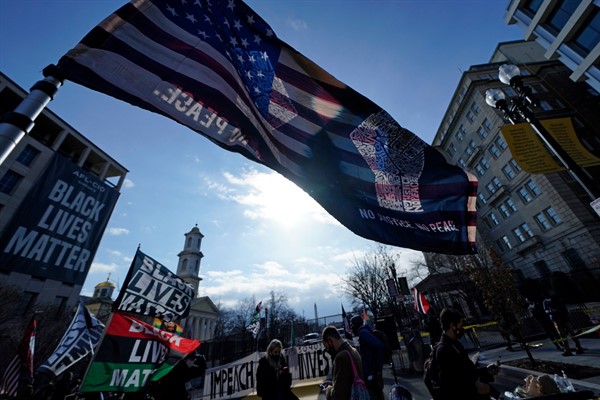Americans don’t agree on much these days. But polls reveal that a majority of them agree on one thing: There are lessons for humanity to be drawn from the COVID-19 pandemic. For the United States, the biggest lesson may not be a spiritual or religious one, but rather that it urgently needs to rethink its approach to foreign policy and reinvent national security for the next generation.
By the time many American children born in 2020 are old enough to run for Congress, the world will be marking the 100th anniversary of the end of World War II. But it is highly unlikely that, come 2045, there will be simultaneous celebrations of a U.S.-led international liberal order. Instead, the America that established the United Nations, the World Bank and the World Health Organization will be long gone, and so, too, will today’s assumptions about what constitutes America’s vital national interests.
Over the next 25 years—just one generation—today’s leading military superpower and preeminent economy will be more urban, more diverse and its population a whole lot older. Over the next 40 years, the number of Americans who are 65 or older will double, and the number over 85 will likely quadruple, according to the Urban Institute. Despite serious COVID-induced setbacks, America’s growing urban and suburban core is also likely to continue to increase in size, income and educational levels. Moreover, all these domestic shifts will converge around the same time that America becomes a “majority-minority” nation.

